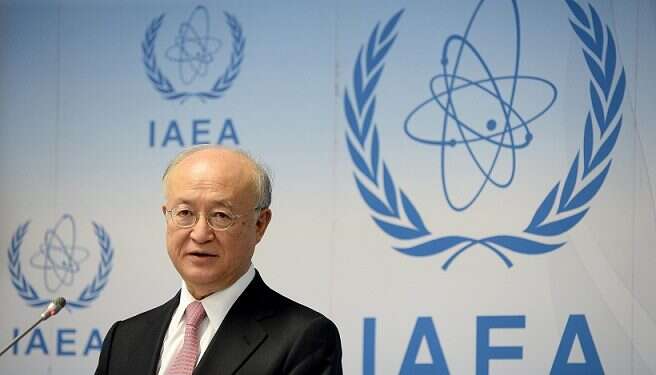Iran continues to comply with the terms of the 2015 nuclear deal with world powers despite the U.S. withdrawal, but it could be faster and more proactive in allowing snap inspections, the U.N. atomic watchdog policing the accord said on Thursday.
In its first report since U.S. President Donald Trump announced Washington's pullout on May 8, the International Atomic Energy Agency said Iran remains within the limits on the level to which it can enrich uranium, its stock of enriched uranium, and other items.
But the agency suggested Iran was dragging its feet on so-called "complementary access" inspections under the agency's Additional Protocol, which are often carried out at short notice.
"The agency ... has conducted complementary accesses under the Additional Protocol to all the sites and locations in Iran which it needed to visit," the IAEA said in a confidential report sent to member states and obtained by Reuters.
"Timely and proactive cooperation by Iran in providing such access would facilitate implementation of the Additional Protocol and enhance confidence," it said.
The report comes as France, Britain and Germany scramble to salvage the deal's core bargain of sanctions relief in exchange for restrictions on Iran's atomic activities. Trump is reimposing U.S. sanctions on Iran, which threatens to scupper the deal and prompt Iranian retaliation.
The IAEA has repeatedly defended the deal, saying it created "the world's most robust verification regime."
Diplomats who follow the agency said an inspection last month went down to the wire, but a senior diplomat said on Thursday the report was not taking Iran to task.
"There was no problem. It's just an encouragement. The IAEA wants to make sure that there won't be any problem," he said, adding that there had been no change in Iranian behavior either during the first quarter of 2018 or since Trump's announcement.
Trump has strongly criticized what he sees as flaws in the deal, including that many of its restrictions lapse over time and that it does not address Iran's ballistic missile program or its role in regional conflicts such as the wars in Syria and Yemen.
At a meeting with the European Union's foreign policy chief in Brussels last week, the French, British and German foreign ministers pledged to preserve the deal by trying to keep Iran's oil and investment flowing, but acknowledged they would struggle to provide the guarantees Iran seeks.
On Wednesday, Iran's supreme leader set out a series of conditions for Iran to stay in the deal, including that European banks should safeguard trade with it.
Russian President Vladimir Putin said on Thursday that he appreciated efforts by Europe to save the Iran nuclear deal despite the withdrawal of the United States and warned of "lamentable consequences" if it was not preserved.
Putin made the comment in a news conference with French President Emmanuel Macron, offering some support for the French leader's plan for negotiating a broader agreement to cover Iran's ballistics program and its activities in the Middle East.
Macron met Putin in a bid to win concessions on Syria, Iran and Ukraine after returning largely empty-handed from a state visit to the United States.
"Certainly we can discuss Iran's ballistic missiles. We can discuss Iran's policies in the Middle East and its nuclear activities after 2025," Putin said.
"But we cannot make preserving the Iranian nuclear deal dependent on these three parameters because if we do, it means that we too are withdrawing from the accord because the deal that exists foresees no additional conditions."
A Macron adviser hailed Putin's comments as a "key" point of convergence between Paris and Moscow as the Trump administration urges its European allies to sever economic ties with Iran.




